How we celebrate Diwali the desi way
Indian mother's secrets to save money and world during festivals
Diwali is around the corner. And as the Delhi city chokes up with smog, I have been using masks at home. Not because of the pollution but because our whole family is cleaning every nook and cranny of our home.
With a broom in her hand, mask on her face and an old dupatta on her head, Maa takes the lead.
She gets upset because no one is cleaning like her, my father wanders around, wiping spotless surfaces, my uncle haggles with the junk dealer, my brother is going up and down the stairs, not knowing what to do, cousin sister is getting ready for a vegan fest, Amma is oiling her hair in the balcony while the little cousin brother is stomping his foot as he is roped in to work on a holiday.
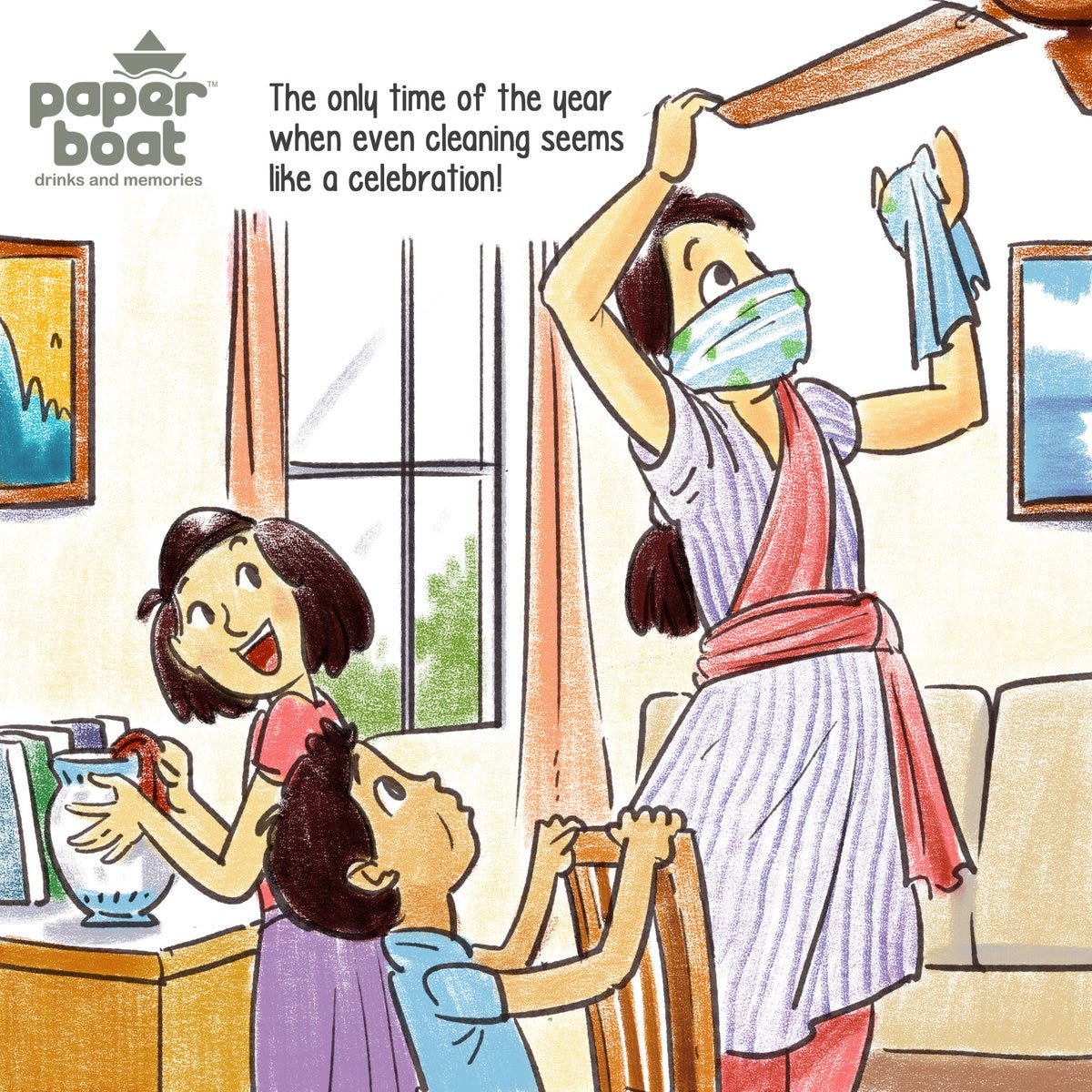
I realize we have accumulated a lot of things that we are never going to use while my younger cousin stands on a tower of stools to reach the topmost cupboard. I cheer him from the ground, inspecting the knick-knacks he hands me.
I wanted to throw out a lot of things that I know we will never use but my mother stops me every time as she carefully overlooks our progress.
I have slowly realized how much we save because of the mentality of getting the whole out of our money.
It is something we have learnt over the generations because of scarcity of resources, respecting the ones we have and saving for the future generations.
Here are some things that maybe useful to you too.
We never buy clothes to clean.
The concept of buying new clothes to clean never existed in our household. Our old T-shirts that cannot be worn again are used as mops, and handkerchiefs and hand towels are used for dusting and cleaning.
We wear the oldest clothes for the day, knowing it is going to get ruined anyway, just like Holi.
The only new piece that is bought is for kitchen countertops. Tissues to clean the kitchen is something my mother will will scrunch her nose at.
We play pass the parcel, but with gifts!
A week before Diwali is when family and friends visit each other’s homes and give gifts that include everything from sweets to utensils.
And the day after the festival is when all of us children sit down to open and taste everything new that came our way, the chocolates the Uncle got from his trip to Dubai, or our favorite walnut cakes from Manohar sweets.
While we would like to eat all the chocolates and Kaju katli, a sweet made of Cashews, better sense and our mother’s glare prevails to save our teeth.
A lot of it remains unopened and is passed on to another relative or friend. This reduces the chances of keeping the stuff that we might never use, especially the perishable food items. So, I guess it's okay (sigh).
No food down the drain
The cream over milk is saved over days and clarified butter is made from something that is considered waste in most homes. This is just an example of my mother not letting anything go.
All the sweets that cannot be consumed by the family are melted in a pot with milk and an ice cream is made that is devoured within hours by children and the guests.
The leftover puris, deep fried breads, are consumed with fresh curry on the next day. While any vegetable or gravy is eaten with bread or made into sandwiches.
I think by now, you can guess that Diwali is mostly good food and games after the puja.
Let’s earn some money!
Dhanteras, two days before Diwali, new things are bought for the household, a broom is bought to signify cleaning to welcome Goddess Lakshmi of wealth. And utensils, silver coins and even gold for prosperity.
But, before the festivities begin, We gather all the utensils that are old and happily take them to our local vendor who buys them for recycling.
Not only this, but all the newspapers and books accumulated over the year are sold as raddi and then recycled by the industries as craft paper.
Some sarees from my mother are also repurposed as suits or tops for me, giving the cloth a new life.
Vocal for local!
While my mother has embraced the 10 minute delivery apps, my father is vehemently against them. Steeping out to the local market to buy groceries in morning or evening to buy fresh produce from the vendors is a habit we have known for years.
During Diwali season, you will find families preferring to buy things from their local sweet shops or from their own families and friends who run small businesses.
Diyas, made of clay will be used for lighting. Real flowers for decoration, and paper hangings made by the little cousins for their art class in school to grace the doors.
A local network of business women also roams around all the streets from time to time. They take up old clothes, mostly sarees which they then resell them at cheaper prices to other people.
Bring out the veggies!
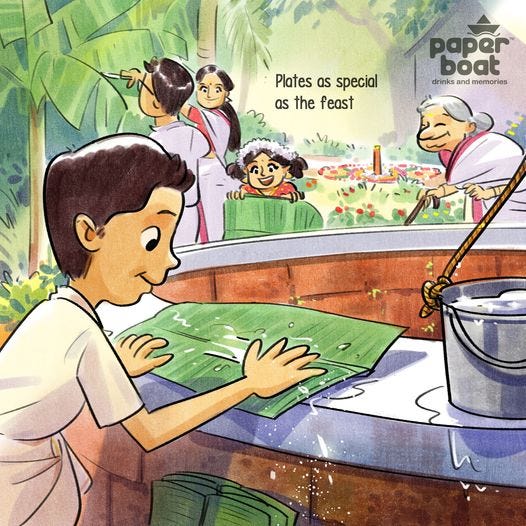
A quick google research says that 39% of Indian population is vegetarian, and the percentage fluctuates to more during the festive season when most of the people stay away from Non vegetarian options. The culture also governs the habit of switching to food that is light on the gut when the seasons change for better health.
Banana leaves are used to serve a large number of people in the southern part of India while biodegradable plates and bowls made from sugarcane are preferred up north.
All this is not only light on the pocket but the environment too.
Now, I have to go. The guests have arrived.
Happy Diwali to you all!
Tell me how you celebrate, and what small things your family does to save money during the festive season.
As you can see, I clearly love Paper Boat’s Instagram page. They post such good stuff. If they had a Substack page, I would recommend it in a heartbeat.

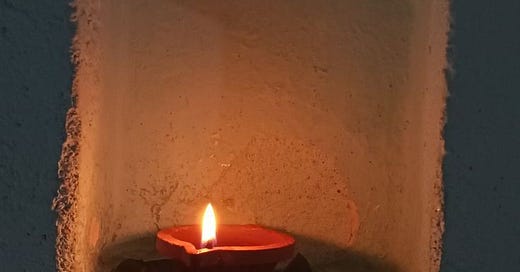


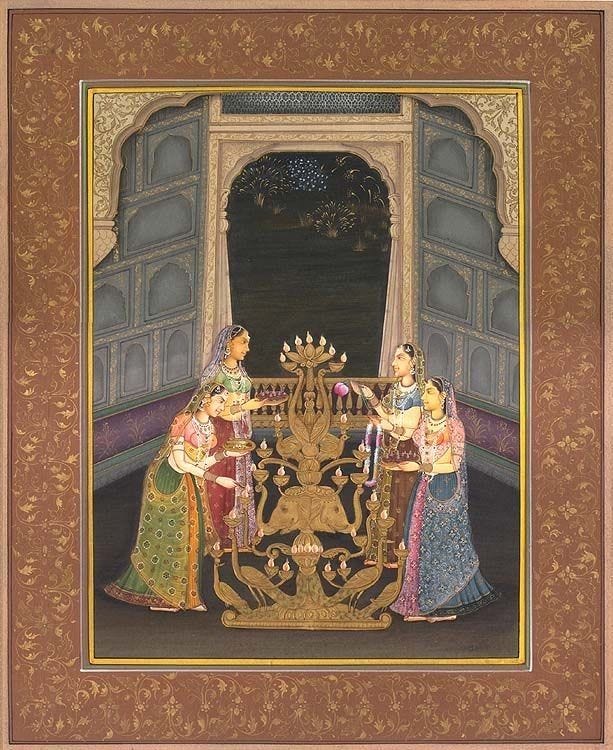
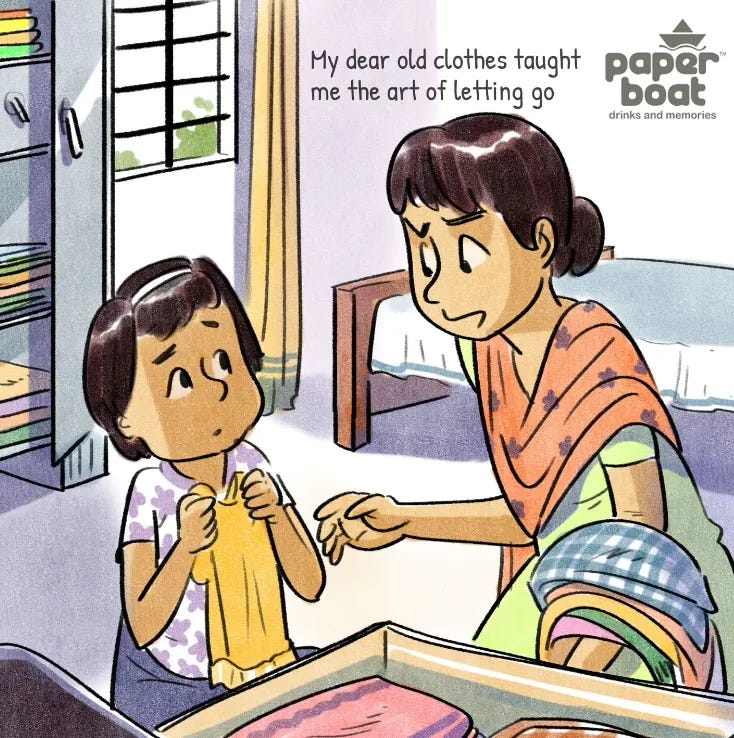
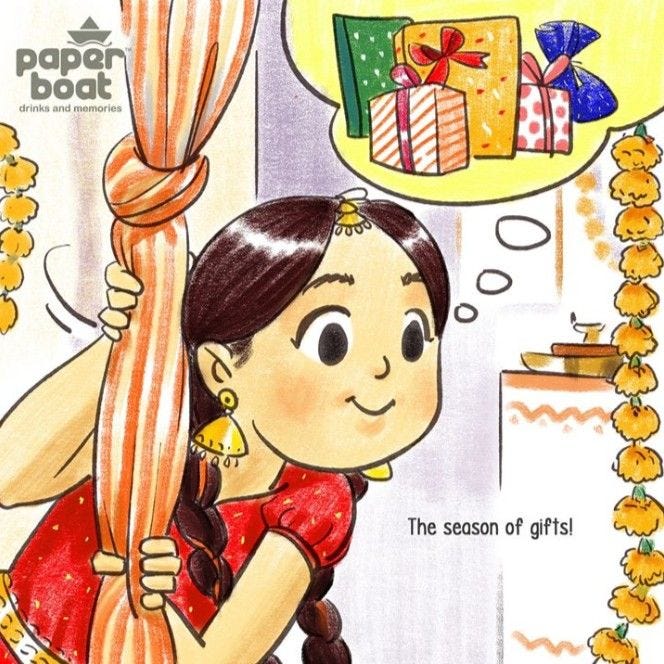
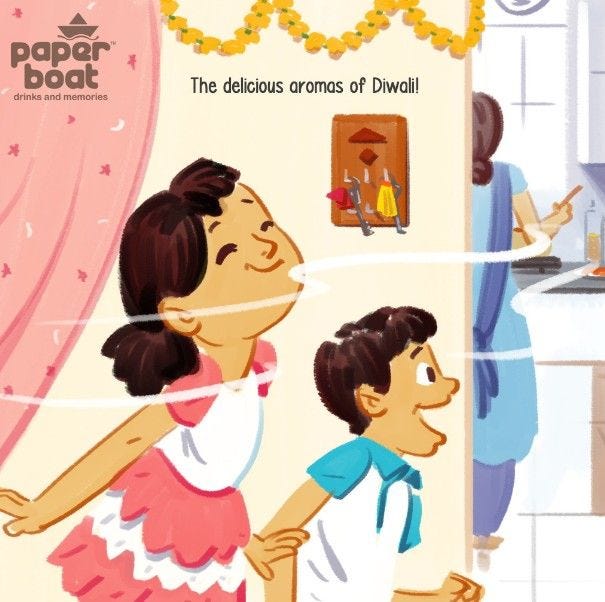
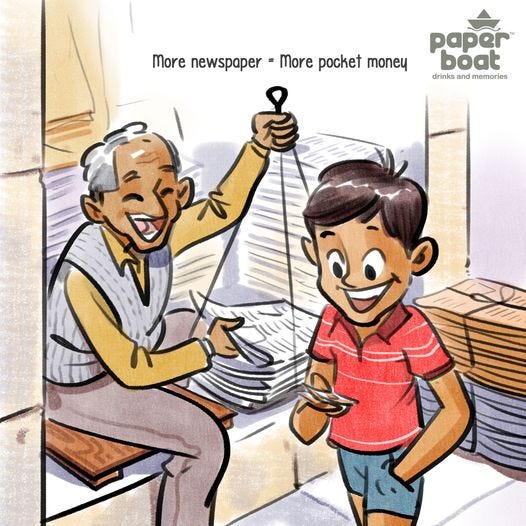
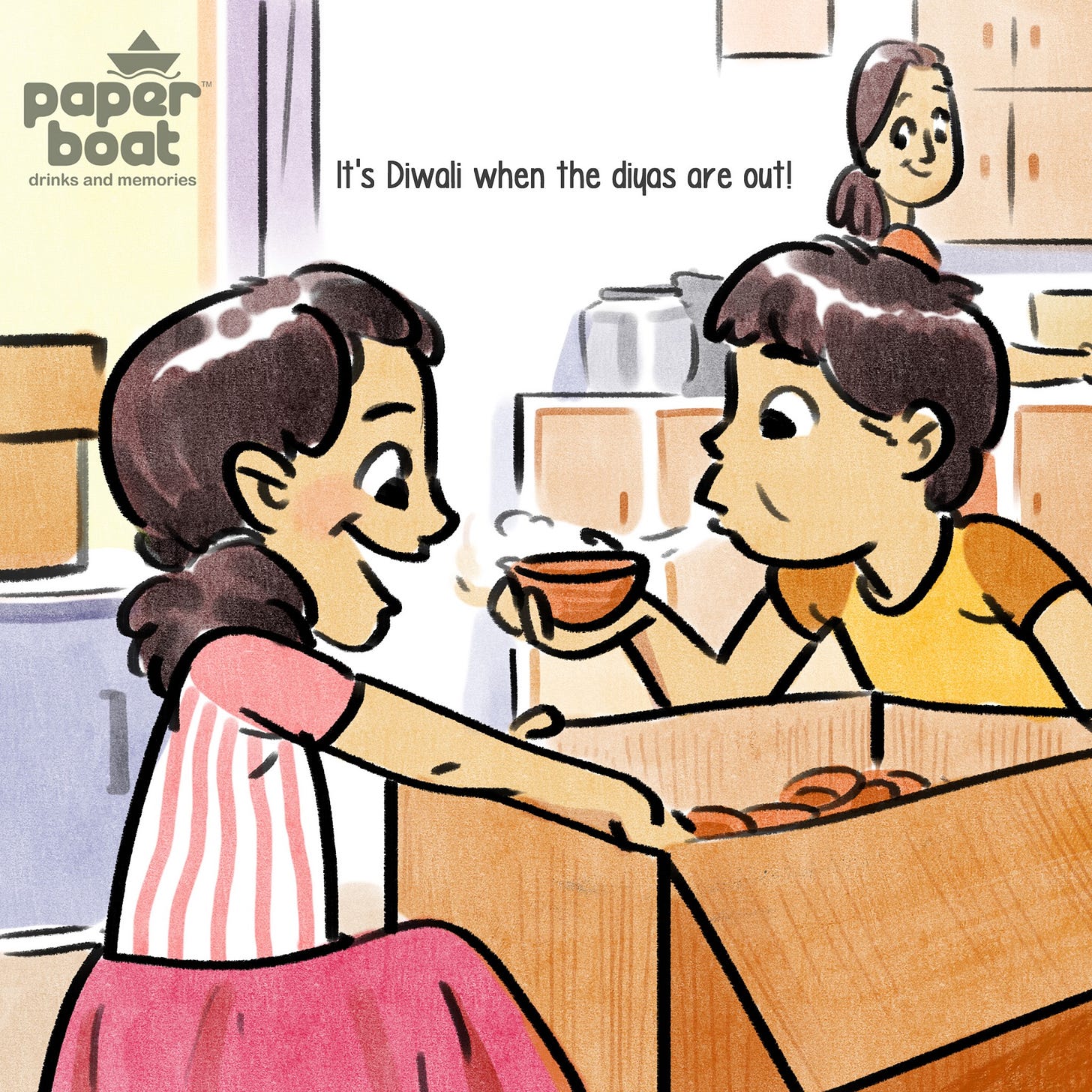

So well written, and so relatable!
How wonderful to learn about another's culture directly from them! Thank you for sharing, so many things I didn't know.